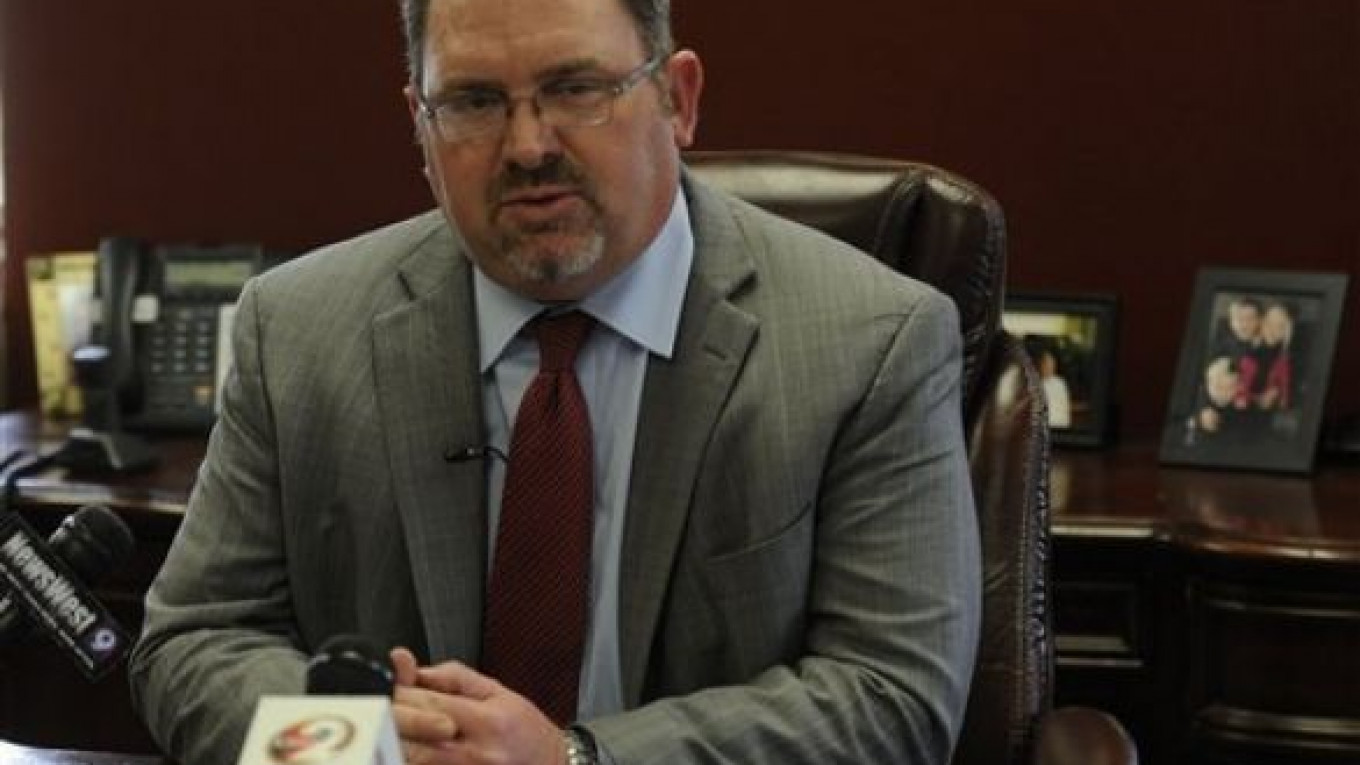The Foreign Ministry on Tuesday lambasted a ruling by Texas authorities not to press charges against the U.S. parents of Max Shatto, an adopted Russian 3-year-old whose death in a small Texas town set off a firestorm of criticism by Russian officials.
“The decision by authorities in the state of Texas not to press charges against the Shatto couple in regard to the tragic death of Maxim Kuzmin raises serious questions,” Konstantin Dolgov, the Foreign Ministry’s human rights chief, said in a video address on the ministry’s website. Maxim Kuzmin was Shatto’s Russian name.
“Unfortunately, the incident reflects the wider ‘lenience’ of U.S. law enforcement and courts of various levels toward American adoptive parents, as a result of whose actions children adopted from Russia have died,” he said.
Dolgov said Russia would insist on receiving all documents pertaining to the child’s death as well as “unimpeded consular access” to Shatto’s younger brother, Kris, known in Russian as Kirill, who was also adopted by Alan and Laura Shatto and lives with the couple in Gardendale, Texas.
Dolgov was speaking a day after an Ector County District grand jury ruled that there were no grounds for criminal charges against the Shattos. Local medical experts earlier found that Shatto’s Jan. 21 death was accidental.
“This child did not kill himself. He hurt himself,” Ector County District Attorney Bobby Bland told journalists on Monday, The Associated Press reported.
U.S. authorities believe that Shatto sustained a fatal injury while playing with his brother after Laura Shatto left them alone for about 10 minutes, Bland said.
Bland, the district’s top prosecutor, said that the boy was severely underweight and that “it would not have taken too much force” for Shatto to suffer a critical injury. He said the jury was unanimous in its decision to clear the Shattos of responsibility.
Shatto died in a local hospital of internal bleeding caused by blunt force trauma, according to doctors.
Shatto’s death has exacerbated tensions between Russia and the United States, with both sides trading pointed barbs through official channels and in less guarded comments on social networks.
Pavel Astakhov, Russia’s children’s rights ombudsman, has claimed that Shatto died as a result of a “savage beating” by his adoptive mother and that he was regularly given Risperdal, a powerful adult drug for treating schizophrenia. Other Russian officials have cited the Shatto case as justification for recently passed legislation banning U.S. parents from adopting Russian children.
The U.S. State Department has repeatedly dismissed Astakhov’s claims, and U.S. Ambassador to Russia Michael McFaul has called for an end to “sensational exploitations” of the tragedy.
Adding fuel to the fire, Astakhov called the Texas court ruling “upsetting” and accused U.S. officials of refusing to conduct a “thorough investigation” in comments late Monday on Twitter.
On Tuesday, the Investigative Committee opened a criminal case on negligence charges over the Shatto brothers’ adoption from a Pskov region orphanage. Maxim and Kirill Kuzmin ended up at the orphanage after their biological mother, Yulia Kuzmina, lost custody for negligence and alcohol abuse.
Although the U.S. investigation into Shatto’s death has been officially closed, Russian investigators last month opened a separate case on murder charges against Laura Shatto, a largely symbolic gesture since U.S. authorities have carried out their own investigation and cleared her.
Texas Child Protective Services are also continuing their own inquiry into allegations that Shatto was subject to physical abuse and neglect. If the child services inquiry turns up new evidence, the case could be returned to court.
Contact the author at a.winning@imedia.ru
Related articles:
A Message from The Moscow Times:
Dear readers,
We are facing unprecedented challenges. Russia's Prosecutor General's Office has designated The Moscow Times as an "undesirable" organization, criminalizing our work and putting our staff at risk of prosecution. This follows our earlier unjust labeling as a "foreign agent."
These actions are direct attempts to silence independent journalism in Russia. The authorities claim our work "discredits the decisions of the Russian leadership." We see things differently: we strive to provide accurate, unbiased reporting on Russia.
We, the journalists of The Moscow Times, refuse to be silenced. But to continue our work, we need your help.
Your support, no matter how small, makes a world of difference. If you can, please support us monthly starting from just $2. It's quick to set up, and every contribution makes a significant impact.
By supporting The Moscow Times, you're defending open, independent journalism in the face of repression. Thank you for standing with us.
Remind me later.






